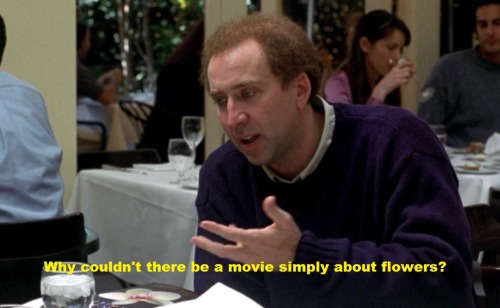Let's start by looking at the same party scene from the first film.
In contrast, we get the 2013 version of this scene. It feels like a crazy party. Some stylistic choices made my Luhrmann could be questioned, but is definitely feels like a party. In the novel Nick says he was drunk at this party, and we assume almost everyone else at that party was equally drunk. The scene is chaotic, with flashes to a saxophone player across the street, loud music, and people spilling things and dancing. The scene gets more chaotic as time passes, as, I imagine, drunk party-goers would.
Remembering Boozer's levels of distance of adaptation, I would argue the 2013 TGG fits all three categories, but is a literal radical interpretation of the novel. Literal in that it translates some dialogue exactly from the novel and includes small details that make the story fuller, and radical in the way it chooses to portray it in film. Literal in feel, traditional in content, radical in style. The 2013 TGG captured the feel of the novel, even if the music was different, or the scenes were shot weird and had words overlaying them; maybe even because of those things.
When the film came out, many people had a problem with the use of modern music. I did, and I hadn't even seen it. I didn't understand why someone would want to make a movie that looked like the 20s, but didn't sound like the 20s. It felt like they were only going part of the way instead of putting in the full effort.
But once I saw the film I changed my mind completely. Talking about it in class also helped me to see why Luhrmann and Jay-Z might have made the decisions they did with the soundtrack of the film. Seeing the whole film (rather than just trailers) with the modern music made the novel come to life. It put me in a place of understanding with the novel. I understood more completely what it might have been to party it up at Gatsby's mansion, or the importance of where Gatsby gets his money, and even the intense longing Gatsby has for Daisy, and how she'll never be what he needs her to be.
Mike brought up an interesting point in class that Lesley then furthered. I had similar feelings, but had never realized them into words, but Mike did, when he said about the soundtrack that maybe they put in the modern music to have us feel what they (the people in the 20s) would have felt. Along these same lines, Lesley brought up rap culture, and how affluence and the ability to be extravagant and flaunt excess wealth is still very much a part of "making it" in the industry today. Therefore, the use of rap music in the film helps to portray that same feeling onto our characters from the 20s. Especially in this scene:
It's a contemporization for understanding and fidelity to meaning. That idea blew my mind.
But I don't really know why it was so revolutionary to me. When I was writing my blog post on Adaptation I thought of this discussion and couldn't wait to bring it up here. We adapt the Bible to be modern for our understanding and fidelity to meaning. That's why a new version comes out like every two years--so that new readers can understand it just as well as readers in the past. What I see Luhrmann and Jay-Z doing with the soundtrack is just that. Reading the novel gave depth to the 2013 TGG, but it wasn't necessary for my understanding, and vice versa.



